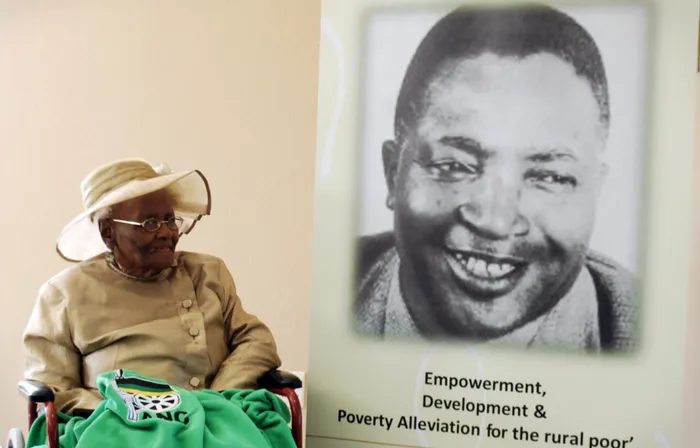MaKotane’s passing, burial brings end to captivating chapter in political history

True to the nature of women of her calibre, Mama Rebecca Morwa Kotane was not just the wife of a political leader; she was a political leader in her own right, says the writer. Picture: Tiro Ramatlhatse
Johannesburg - A captivating chapter in political history closed last Sunday when Mama Rebecca Morwa Kotane passed away, just under two weeks shy of her 109th birthday this coming Tuesday.
MaKotane, as the centenarian was affectionately called, was the widow of the late Moses Mauane Kotane, the former long-serving general secretary of the SACP and treasurer-general of the ANC.
True to the nature of women of her calibre, she was not just the wife of a political leader; she was a political leader in her own right.
There are stories of black matriarchs in the villages bordering Botswana who made it their singular duty during the Struggle against apartheid to help spirit youngsters into exile. That’s a story for another day. MaKotane hailed from Tampostad, in the Pella village in what is now called the Bojanala district.
Like many black mothers of her generation, she eked out a living as a domestic worker.
But the fire in her own belly saw her eschew the sidelines conferred on her by holy matrimony – just being Mrs Kotane. She could no longer afford to be on the political sidelines and joined the Struggle, putting her boots on the ground as part of the historic 1956 Women’s March to the Union Building to protest the introduction of passes for women.
Wathint’abafazi, wathint’imbhokodo (you touch a woman, you touch a rock) was the slogan that accompanied their fearless siege of Pretoria, the bedrock of apartheid.
She’d hear it reverberating later throughout her lifetime as it carried the political hopes of oppressed women – young and old – in the country.
For her trouble in joining the march – led by her peers like Lillian Ngoyi, Violet Wynberg, Amina Cachalia, Helen Joseph and Albertina Sisulu, among others – MaKotane earned a few week’s stay at the notorious Number 4 women’s jail.
Of this illustrious cadreship of women in the August 9, 1956, march, MaKotane was almost the last of the first-account narrators of the day.
Only Sophie Williams-De Bruyn now remains.
A year before the watershed Women’s March, MaKotane was in Kliptown for the congress of the people, where the Freedom Charter – the Bible of the ANC – was adopted.
Subsequent to these epochal events, MaKotane led many marches and contributed immensely to the Struggle for liberation.
She has never been a footnote in the story of the Struggle nor that of her husband. Through her toil and sweat, she saw to it.
She’d live long enough to see their fight pay off in 1994 when the new political dispensation ushered in a democratic order.
She was around in February 2015 when the remains of her husband, and those of JB (John Beaver) Marks were repatriated from Moscow for reburial in their much-loved Pella.
For the natives – a proud Bakwena Ba ga Sechele – lovingly refer to Pella as Phela o phatsimang, the shining Pella.
It is tempting to speak ill of the governing ANC but, to their credit, the party of Luthuli, Tambo, Mandela and Sisulu did not forget MaKotane.
In 2014 she had lunch with former president Jacob Zuma at Genadendal as a special guest to the State of the Nation Address, alongside Martha Mahlangu, mother of Solomon Kalushi Mahlangu, the youngest and probably the model Umkhonto Wesizwe (MK) combatant who was hanged by the apartheid regime.
She was buried on Saturday in Pella, where her husband also rests.
The Kotanes had 7 children. They are now survived by three children – two sons and a daughter – 11 grandchildren and 21 great-grandchildren.
These are the sort of footprints a matriarch of her standing leaves!
At her funeral, where the eulogy was delivered by former president Kgalema Motlanthe, she was buried with the dignity she deserved and befitting a Special Provincial Category 2 funeral.
Among the dignitaries were SACP secretary general Dr Blade Nzimande, Premier Professor Job Mokgoro and Cabinet Minister Lindiwe Sisulu.
All due alert level 3 lockdown rules were observed, including attendance by no more than 50 mourners. Ke ngwetsi ya Bakwena Ba ga Sechele Moradi wa Sebitlo
Tshwene e borethe
Mogale wa bagale
Kwena ya dikwena Motlogolo wa Sebitlwane Robala ka kgotso Motshweneng Ngwetsi Ya Bakwena
The Sunday Independent